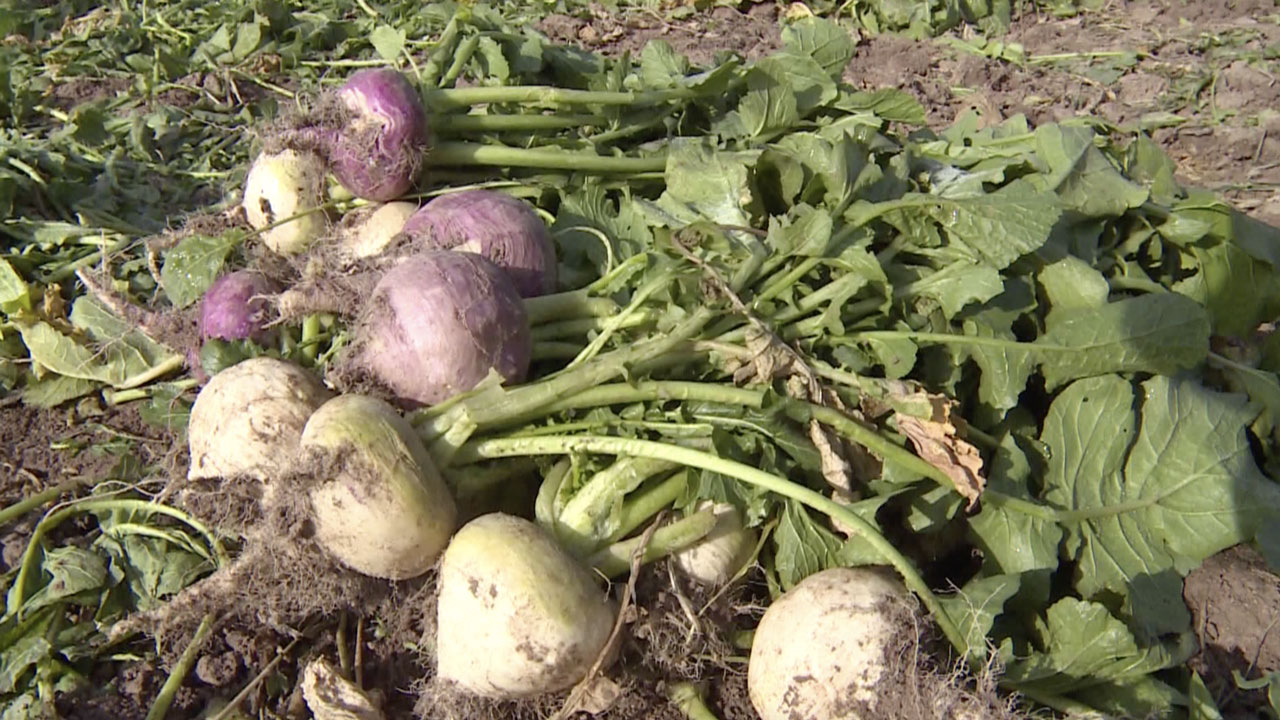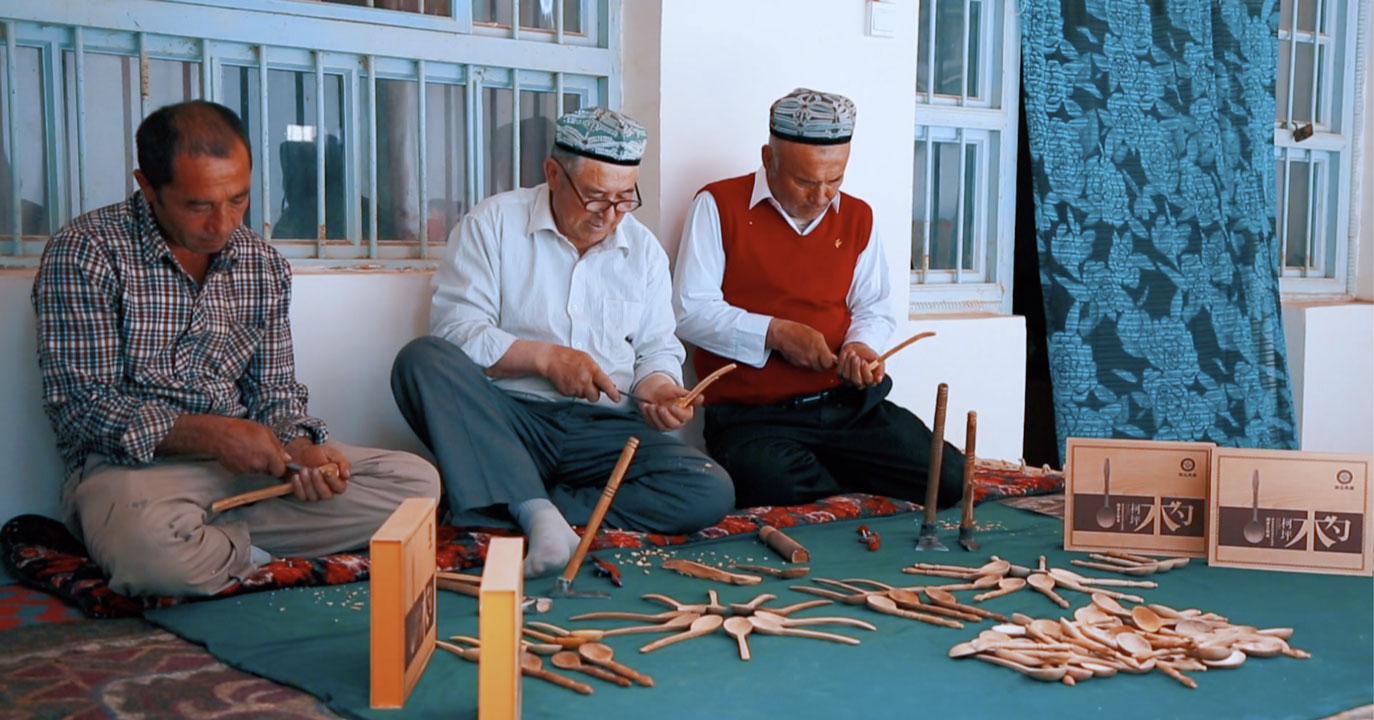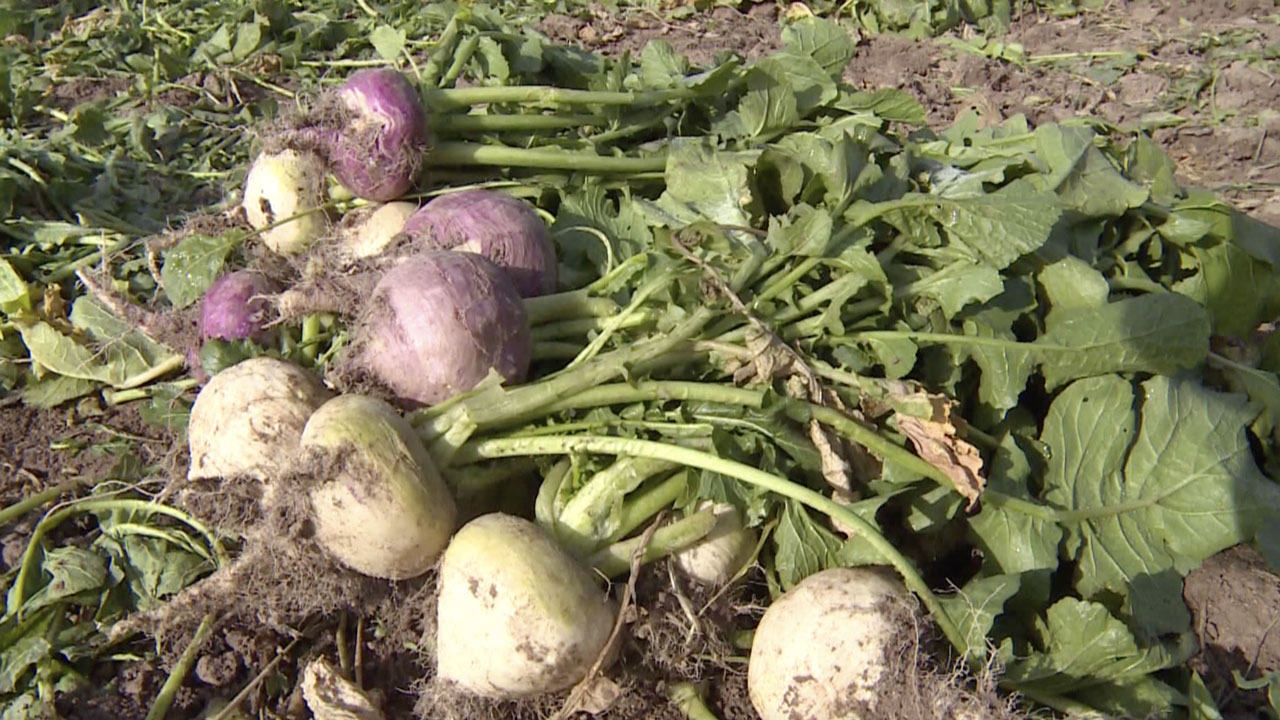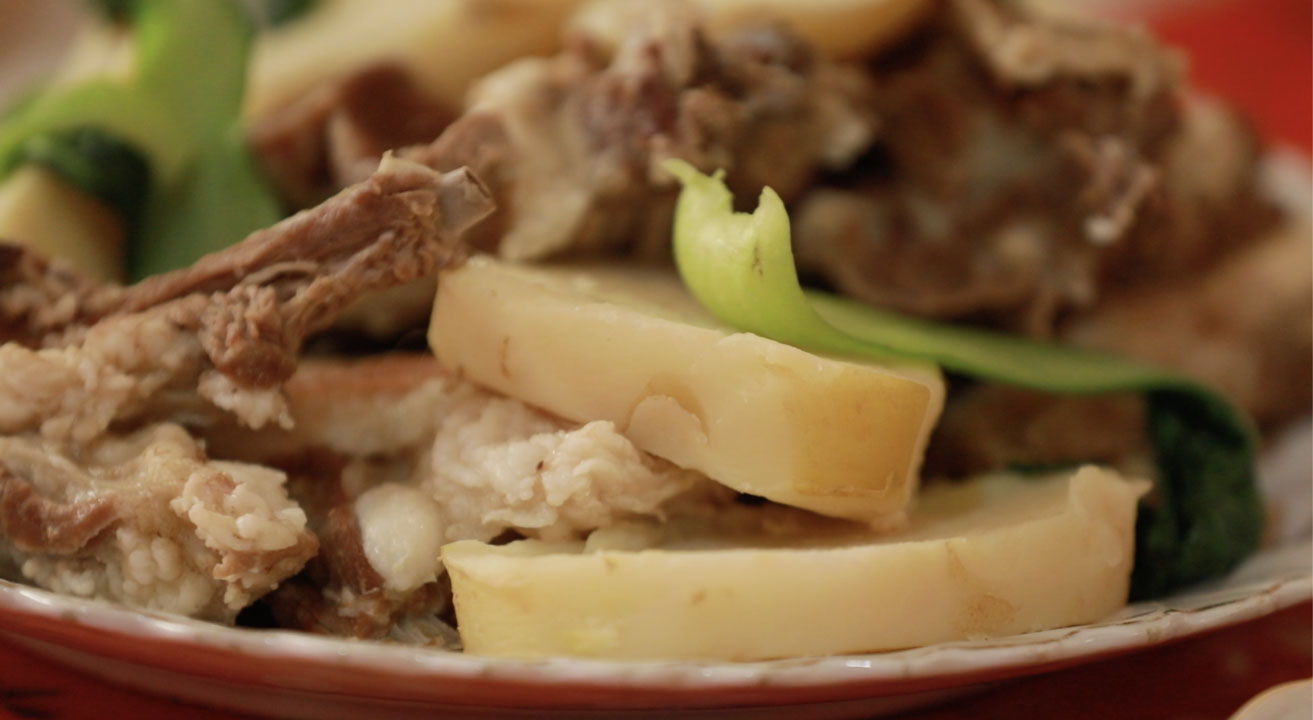03:25

In just an hour, 70-year-old Abdurehman Mamat turns an apricot trunk into a traditional wooden spoon.
It's something seen on many dinner tables throughout Kalpin county in northwestern China's Xinjiang Uygur Autonomous Region. Local Uygurs call it "kuxuk."
Abdurehman began his kuxuk apprenticeship with his grandfather some 50 years ago.

Abdurehman and his apprentices /CGTN Photo
Abdurehman and his apprentices /CGTN Photo
"It's been a popular Uygur handicraft for over 200 years, and grew exquisitely in my generation," he said. "I never think of retiring."
But some years ago, the very water source used for irrigating apricot trees was what Kalpin people relied on for daily use. And it was far from freshwater.
A national water resource survey conducted in the 1980s found that the northern reaches of the Tarim Basin and Taklimakan Desert suffered not only from a water shortage, but that people in those regions had no fine water to use.
"For decades, we drank saline water which was high in calcium carbonate," Abdurehman said.
Thus, locals were likely to fall ill. For instance, they had high blood pressure, gallstones and kidney stones. Washing one's hands and body just dried the skin out in Kalpin, he recalled.
According to Liu Shaodong, deputy director of Kalpin's Water Conservancy Bureau, the desalination efforts began in the 1990s, and the Xinjiang government approved a 1 billion U.S. dollar project in 2016.
"The water project has secured about 5 million cubic-meters of water supply per year," Liu said. "In October 2018, the fine water reached 56,000 Kalpin people in 37 villages."
The project has also freed up about 3 million cubic meters for irrigation, increasing crop yields across more than 6 million square-meters of land.
It has invigorated the apricots, also the "qamgur," a type of turnip which is quite popular in the autonomous region. Locals like to stew the vegetable with lamb.

Thirty-five-year-old Kurban Rehman is a mechanic-turned-qamgur harvester at a local fruit-vegetable cooperative founded in 2018.
The harvest season earns him 4,500 yuan a month, that's about 650 U.S. dollars.
The qamgur tasted a bit salty before, and now is quite sweet, he said, adding that the desalinated water feels cooler and makes their laundry cleaner.

A dish of Kalpin local stew: qamgur with lamb /CGTN Photo
A dish of Kalpin local stew: qamgur with lamb /CGTN Photo
In fact, the qamgur industry has been the key pillar of Kalpin's economy, thanks to its therapeutic properties and nutritional value. So it's easy to understand why the county wants to build a new 1,400 square-meter qamgur factory in February, the largest of its kind in China.
"The water plays a key role, not only for irrigation, but also in our facilities," Dilshat Mamatemi, the the factory manager said, noting the stimulus policy is directing them to become a processing manufacturer.
The apricot wooden spoon has been listed as an item of regional intangible cultural heritage, and the local cultural authorities also help brand and sell the wooden spoon coming out of his workshop.
Abdurehman said he will mentor future craftsmen who can also carve exquisite wooden spoons as fine as Kalpin's water.